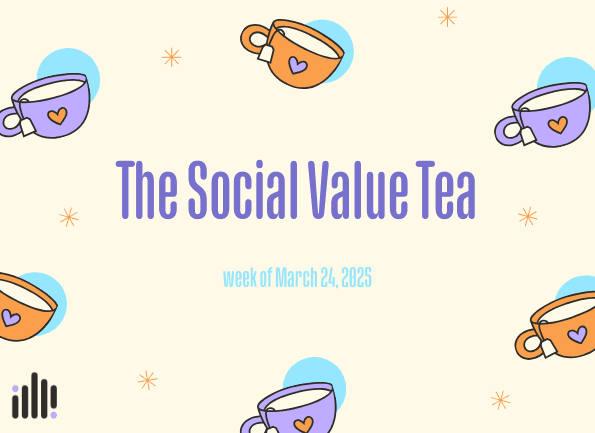Upcoming changes to social value in procurement: everything you need to know
2020 has highlighted the many inequalities and broken systems across the nation and wider world. We can all agree it’s time for a more purposeful, people-focused approach to business and general life. Social value has always been a key aspect of the procurement process and, come 2021, this is set to improve with a new government model.
As a way of levelling up the country and building back better, the government wants to move past the Public Services (Social Value) Act 2012 (SVA). Introducing a new model, they want to ensure a stronger, more resilient future for the country, businesses, people, and local communities.
Originally created to make procurement teams consider both the positive and negative social impacts of their projects, the SVA did its part for encouraging greater awareness and engagement with social value across government projects. But, post-2020 – with the ongoing repercussions of COVID-19 and all the inequalities it has exposed – it’s time for a stricter, more targeted approach to social value and government procurement.
The new model
According to the government, as of 1st January 2021, “social value should be explicitly evaluated in all central government procurement, […] rather than just ‘considered’ as currently required under the Public Services (Social Value) Act 2012.”
The wording change from social value being ‘considered’ to ‘explicitly evaluated’ highlights a big shift in the government’s approach to social value. As we’ve been saying over the past few months, social value, sustainability, and CSR are no longer things that are ‘nice to have’, but rather essential, valuable priorities for any business or authority. And it’s great to see this notion reflected in the government’s own guidelines.
A minimum weighting of 10% of the total score for social value will soon apply to all tenders in government procurement, a higher weighting can also be applied if justified. This affords greater opportunities to smaller businesses and social enterprises to compete for government contracts. Could it lead to a reduction in all supplier submissions, meaning less social value is being pledged? There is always the possibility, but we would not consider it likely.
Cabinet Office Minister Julia Lopez explained: “We want to see a greater variety of companies deliver government contracts, from every corner of our country. Not just because that benefits local economies and communities, but because it helps diversify our risk, creates a more resilient supplier base, and delivers some of our critical priorities.”
This new model is about increasing social value to help people on the individual and community level, as well as strengthening businesses, the economy, and the nation as a whole. It’s all centred around building a stronger future for everyone.
#What’s on the agenda?
The guidelines include a new ‘Annex A’ model that sets out more specific, targeted themes for procurement teams to focus on. Themes that look specifically to improve the state of the nation in a post-pandemic world. They’re based upon what the next few years will bring in terms of recovery and further struggles.
Annex A – alongside which organisations will be expected to assess new contracts – includes the following themes:
- COVID-19 recovery – Help local communities manage and recover from the impact of COVID-19.
- Tackling economic inequality – Create new businesses, jobs, and skills and to increase supply chain resilience and capacity.
- Fighting climate change – Effective stewardship of the environment.
- Equal opportunity – Reducing the disability employment gap and tackling workforce inequality.
- Wellbeing – Improve health and wellbeing and community integration.
What does this mean for procurement teams?
For procurement teams across the country, there will be a need to make it simpler to visualise and evaluate the social value commitments of suppliers. With the minimum weighting lowered and more organisations encouraged to apply for contracts, as well as a stricter model to follow when measuring social value, work will be needed to make the social value aspect of procurement more streamlined and reliable.
At Impact, we’ve put together a whole resource on these changes, what it means for procurement teams, and advice for approaching the new regulations. If you’d like to find out more, you can read it here.
And over the next few weeks, we’ll be looking more specifically at how procurement teams can prepare for January’s changes and establish a more streamlined, valuable, and reliable procurement process that extracts as much social value as possible out of every contract.
Impact Reporting provides an intuitive and streamlined way for procurement teams to manage the social value side of procurement. A simple system that can feed into existing procurement tools and enables teams to prioritise the social value commitments of suppliers alongside their skills and value for money. If you’d like to find out more, or have any questions, give us a call on 0161 532 4752.

